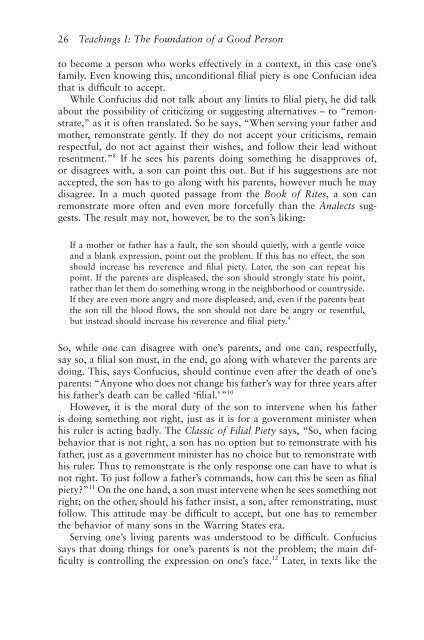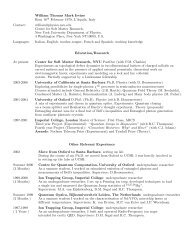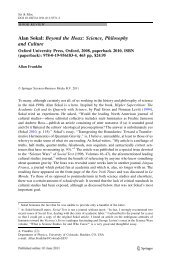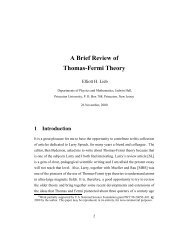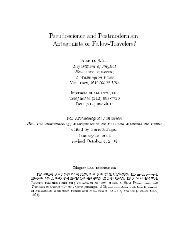Good Confucianism book (pdf) - Department of Physics
Good Confucianism book (pdf) - Department of Physics
Good Confucianism book (pdf) - Department of Physics
You also want an ePaper? Increase the reach of your titles
YUMPU automatically turns print PDFs into web optimized ePapers that Google loves.
26 Teachings I: The Foundation <strong>of</strong> a <strong>Good</strong> Personto become a person who works effectively in a context, in this case one ’ sfamily. Even knowing this, unconditional filial piety is one Confucian ideathat is difficult to accept.While Confucius did not talk about any limits to filial piety, he did talkabout the possibility <strong>of</strong> criticizing or suggesting alternatives – to “ remonstrate,” as it is <strong>of</strong>ten translated. So he says, “ When serving your father andmother, remonstrate gently. If they do not accept your criticisms, remainrespectful, do not act against their wishes, and follow their lead withoutresentment. ” 8 If he sees his parents doing something he disapproves <strong>of</strong>,or disagrees with, a son can point this out. But if his suggestions are notaccepted, the son has to go along with his parents, however much he maydisagree. In a much quoted passage from the Book <strong>of</strong> Rites , a son canremonstrate more <strong>of</strong>ten and even more forcefully than the Analects suggests.The result may not, however, be to the son ’ s liking:If a mother or father has a fault, the son should quietly, with a gentle voiceand a blank expression, point out the problem. If this has no effect, the sonshould increase his reverence and filial piety. Later, the son can repeat hispoint. If the parents are displeased, the son should strongly state his point,rather than let them do something wrong in the neighborhood or countryside.If they are even more angry and more displeased, and, even if the parents beatthe son till the blood flows, the son should not dare be angry or resentful,but instead should increase his reverence and filial piety. 9So, while one can disagree with one ’ s parents, and one can, respectfully,say so, a filial son must, in the end, go along with whatever the parents aredoing. This, says Confucius, should continue even after the death <strong>of</strong> one ’ sparents: “ Anyone who does not change his father ’ s way for three years afterhis father ’ s death can be called ‘ filial. ’ ” 10However, it is the moral duty <strong>of</strong> the son to intervene when his fatheris doing something not right, just as it is for a government minister whenhis ruler is acting badly. The Classic <strong>of</strong> Filial Piety says, “ So, when facingbehavior that is not right, a son has no option but to remonstrate with hisfather, just as a government minister has no choice but to remonstrate withhis ruler. Thus to remonstrate is the only response one can have to what isnot right. To just follow a father ’ s commands, how can this be seen as filialpiety? ” 11 On the one hand, a son must intervene when he sees something notright; on the other, should his father insist, a son, after remonstrating, mustfollow. This attitude may be difficult to accept, but one has to rememberthe behavior <strong>of</strong> many sons in the Warring States era.Serving one ’ s living parents was understood to be difficult. Confuciussays that doing things for one ’ s parents is not the problem; the main difficultyis controlling the expression on one ’ s face. 12 Later, in texts like the


